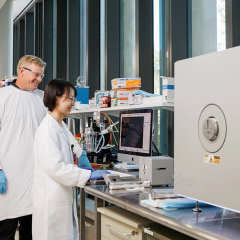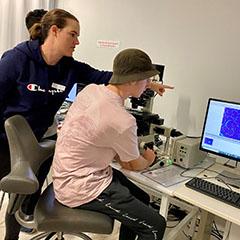Brisbane is now home to the world’s most advanced genomics sequencer – a machine that will help unlock secrets to save the reef, improve grain production, refine medical diagnostics and safeguard the health of elite athletes.
Developed by Chinese global genomics giant BGI, the first BGISEQ-500 genomics sequencers to arrive in the southern hemisphere will operate from the company’s new Australian headquarters at the Queensland Institute of Medical Research at Herston.
This morning a special on-site ceremony is marking the official launch of BGI’s first southern hemisphere genomics laboratory, the unveiling of its cutting-edge sequencer plus the formalising of critical research partnerships with two of the country’s leading universities, University of Queensland and University of Melbourne.
Ahead of the event, BGI’s Executive Vice-President, Duncan Yu, said BGI Australia’s research would be “focused on health, medicine, environment and agriculture, due to the plentiful resources in the country, and with the strong support from our partners and integration of our expertise”.
“We have made significant progress with local partners – such as QIMR, The University of Queensland, Griffith University, James Cook University, The University of Melbourne and The University of Western Australia – on topics including cancer treatment, biodiversity, infectious disease and millet breeding,” Mr Yu said.
“With the opening of our Brisbane laboratory, we look forward to building more extensive collaborations with Australian organisations to advance further innovation and deliver valuable outcomes.”
The University of Queensland Centre for Advanced Imaging’s Director, Professor David Reutens, said the research collaboration with BGI was unique and was set to boost the centre’s research, development and commercialisation.
“It will combine anatomical imaging data from Australia’s first ultra-high field 7T MRI with whole genome sequencing data from participants who have intractable focal epilepsy,” Professor Reutens explained. “By using this approach, we aim to develop early diagnostic tools for this debilitating disease and for range of other clinically significant disorders.
“Strong industry collaborations such as this mean that world-class CAI research has a better chance of being commercialised and contributing to advances in medicine around the world.”
Full press release from BGI Australia available here.



